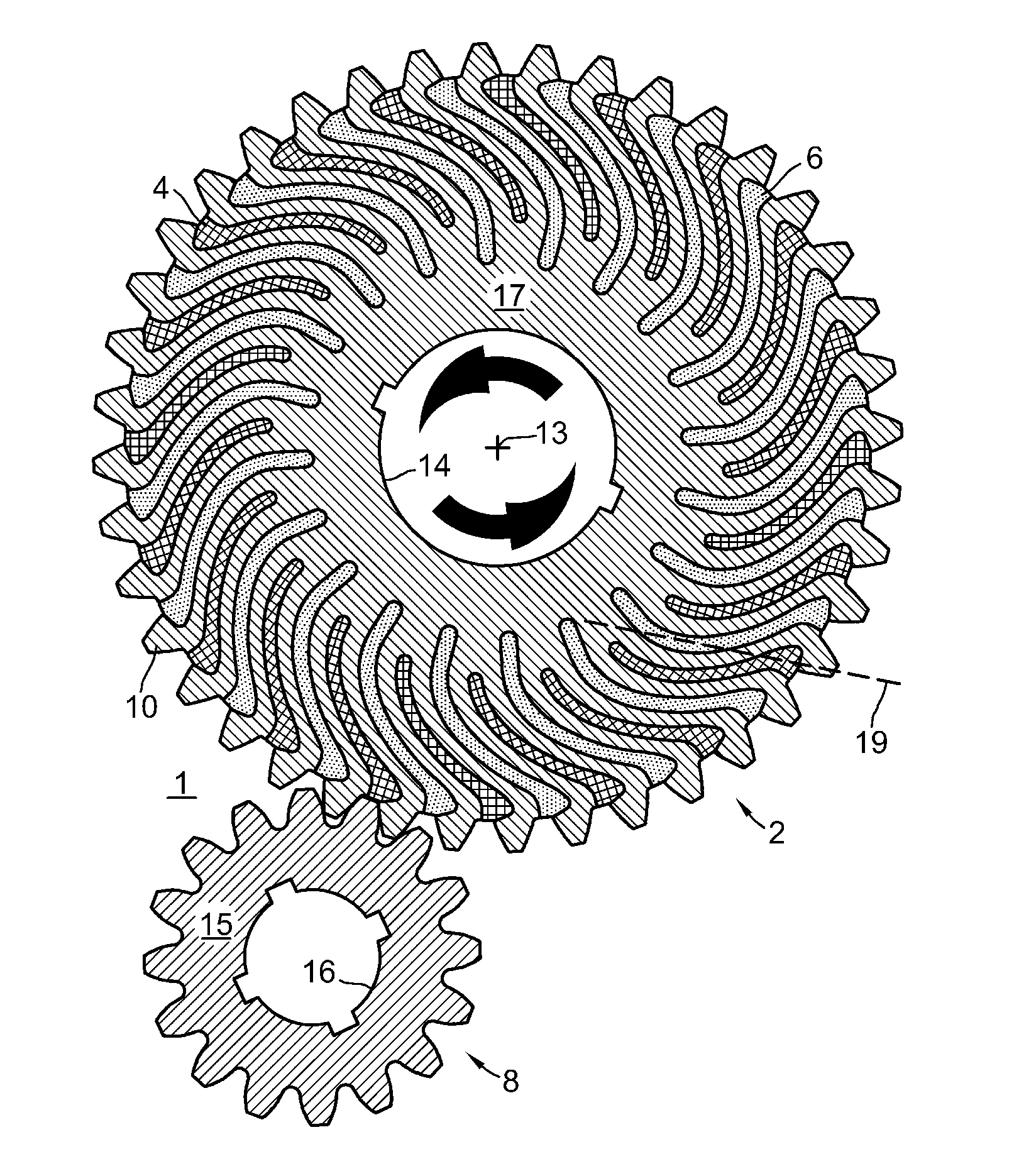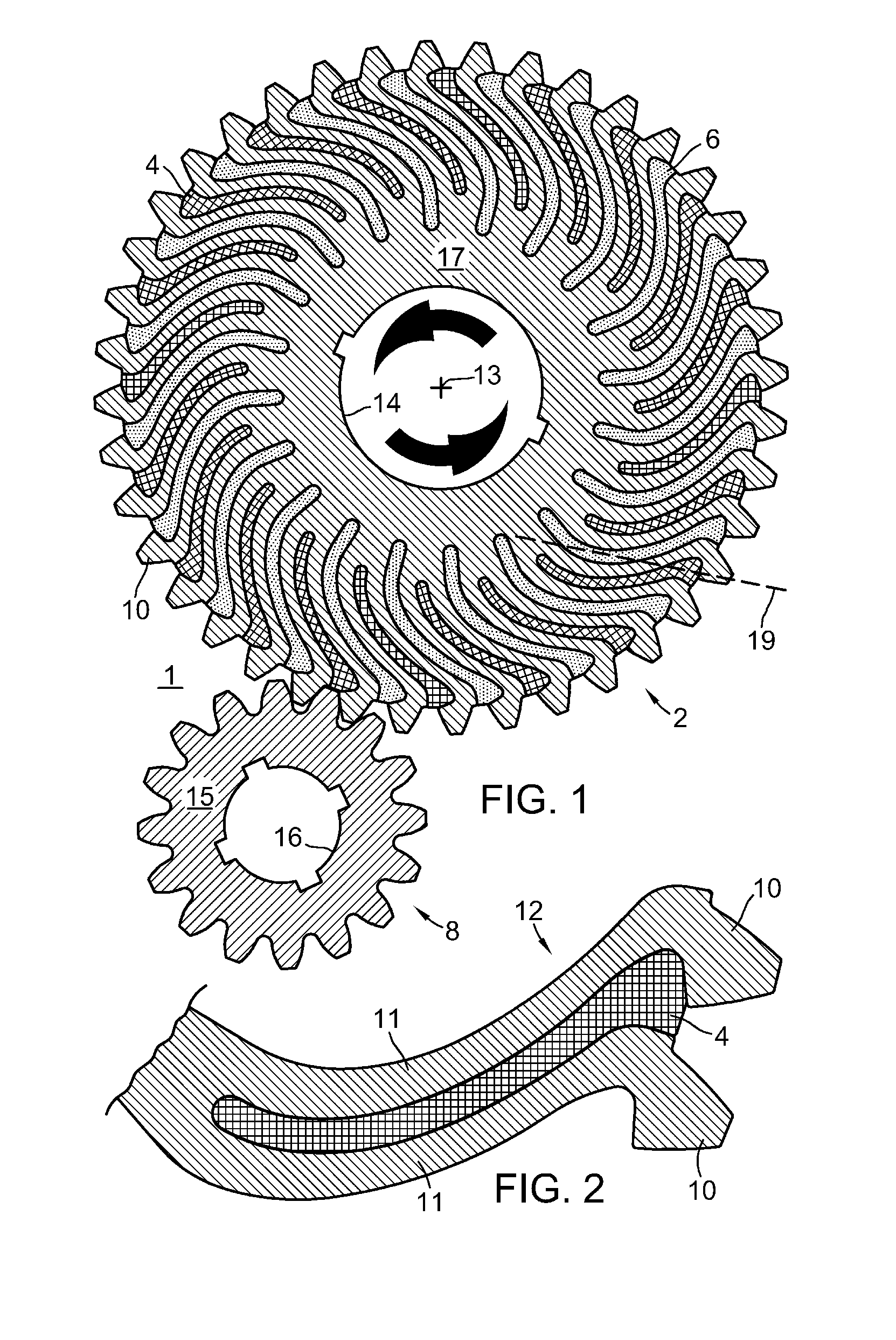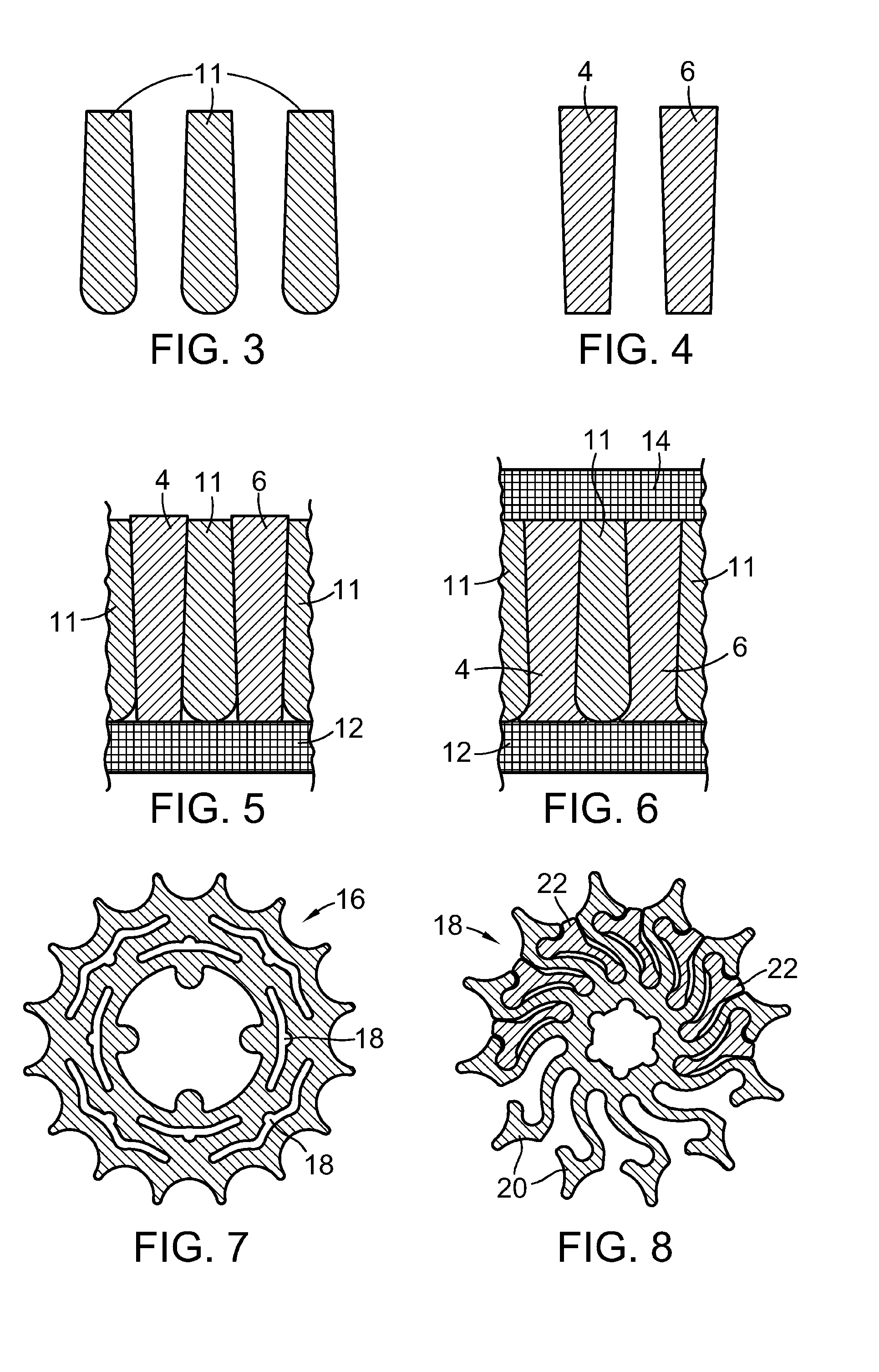Torque-handling gear with teeth mounted on flexible arms
a flexible arm and torque-handling technology, applied in the field of rackandpinion gear sets, can solve the problems of less torque, noise and vibration in conventional gears, and limited hertzian contact stress, and achieve the effect of efficient transfer of torqu
- Summary
- Abstract
- Description
- Claims
- Application Information
AI Technical Summary
Benefits of technology
Problems solved by technology
Method used
Image
Examples
Embodiment Construction
[0045]FIG. 1 shows a gear set 1 comprising a gear 2 meshing with a pinion gear 8 for transmitting torque between them. In this example, gear 2 rotates in the direction indicated by the arrows about an axis 13 and drives gear 8. Gears 2 and 8 have respectively, hubs 17 and 15 with central openings 14 and 16 for mounting on shafts for rotation. Gears 2 and 8 lie in a gear plane coincident with the paper plane for FIG. 1.
[0046]FIG. 2 shows two individual tooth-arm units 12, each tooth-arm unit 12 comprising a tooth 10 mounted or attached on the outside end of a slender spiral arm 11 forming a cantilevered beam. The thinness of arms 11 relative to their length allow arms 11 to flex elastically under load, allowing teeth 10 to shift both radially and tangentially. That is, teeth 10 will under load, shift in any direction within the gear plane because of the flexibility of arm 11.
[0047]In FIG. 1, each arm 11 is integral with hub 17 at an attachment point. A line 19 drawn between the attac...
PUM
| Property | Measurement | Unit |
|---|---|---|
| acute angle | aaaaa | aaaaa |
| arm angle | aaaaa | aaaaa |
| angle | aaaaa | aaaaa |
Abstract
Description
Claims
Application Information
 Login to View More
Login to View More - R&D
- Intellectual Property
- Life Sciences
- Materials
- Tech Scout
- Unparalleled Data Quality
- Higher Quality Content
- 60% Fewer Hallucinations
Browse by: Latest US Patents, China's latest patents, Technical Efficacy Thesaurus, Application Domain, Technology Topic, Popular Technical Reports.
© 2025 PatSnap. All rights reserved.Legal|Privacy policy|Modern Slavery Act Transparency Statement|Sitemap|About US| Contact US: help@patsnap.com



